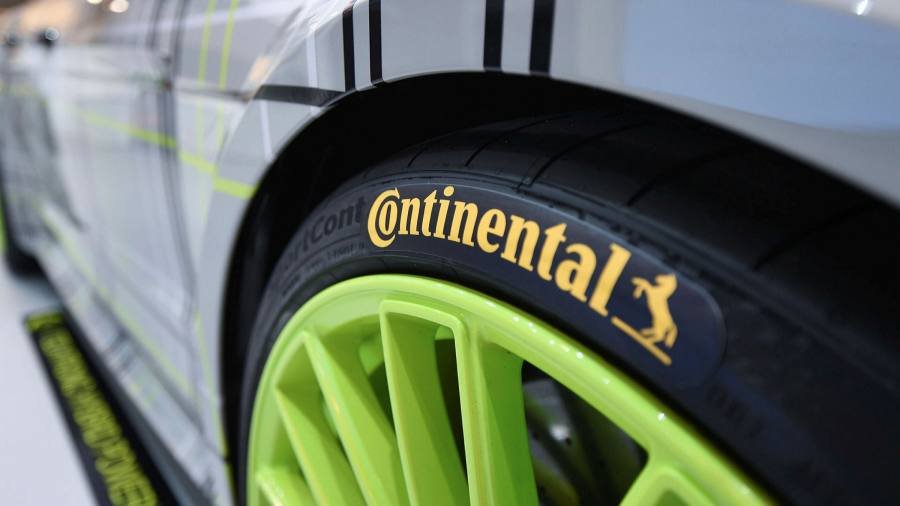[ad_1]
The brand new boss of Continental, one of many world’s largest car components makers, has dominated out deeper job cuts even when the EU tightens carbon emissions targets and forces the trade to quicken its electric transformation.
Nikolai Setzer mentioned on Wednesday the German group wouldn’t add to the 30,000 jobs already in danger in a wide-ranging restructuring plan, launched final yr to regulate to the upheaval within the auto trade.
The chief govt added that the Hanover-based company would emerge as a “winner” within the shift to battery-powered vehicles and would goal a revenue margin of as much as 11 per cent, regardless of shifting from its conventional tyres and engine companies to constructing software program and high-tech elements.
This month, Continental board member Ariane Reinhart instructed the Monetary Instances that the transition to electric automobiles was occurring too quickly and on the expense of individuals’s livelihoods.
However Mr Setzer, a Continental lifer who took over as chief govt this month after his predecessor stepped down citing well being causes, mentioned tighter CO2 targets would “offer more opportunities than risk” for Continental.
Whereas stricter rules from Brussels would “definitely shift our portfolio”, and result in larger investments in elements for electric vehicles, it might have “no effect on autonomous mobility, on autonomous driving, on the need for tyes,” he instructed the Monetary Instances.
“I don’t see any direct effect, and if so, then rather a positive effect on [Continental’s] automotive technologies business,” he added.
Mr Setzer’s predecessor had warned that Continental, whose components are present in 4 out of 5 vehicles worldwide, didn’t anticipate the worldwide car market to succeed in its 2017 peak once more till at the least 2025.
However Mr Setzer mentioned the company, which plans to spin-off its engine-making unit, Vitesco, would focus as a substitute on rising the quantity of revenue it might eke out per half.
“The question is not the number of vehicles,” he mentioned “The question is how much value can the automotive industry bring to the consumer?”
If Continental might “focus on growth and execute it in the right way, manage our value in the right way, we are a winner out of the transformation”, he added.
Suppliers akin to Continental, Bosch and ZF have been among the many hardest hit by the shift to emissions-free vehicles, as their largest shoppers produce extra digital elements and software program in-house in an try to carry down prices.
“We expect carmakers to further standardise components and systems,” analysts at score company Fitch wrote this month.
“Furthermore, [electric] models require less maintenance and undercut suppliers’ spare part businesses, as a full [electric vehicle] has fewer moving parts,” they added, hitting suppliers’ revenue margins simply as they’ve to speculate extra to maintain up with the speedy technological change.
However Mr Setzer insisted that producers would require Continental’s assist to deal with the elevated “complexity” of autonomous and electrified vehicles.
“Nobody can do this fully on their own,” he mentioned, including that even massive carmakers akin to VW and Daimler, who needed to develop their very own bespoke software program, would depend on suppliers for extra standardised “middleware”.
In consequence, the Dax-listed company, which already employs 20,000 software program engineers, “would focus on what is under the waterline, non-differentiating parts”, he added.
Further reporting by Alexander Vladkov in Frankfurt
[ad_2]





